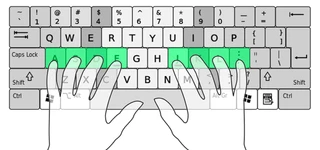How to Overcome Biggest Challenges in Bookkeeping

Are you facing problems with managing your accounting practices? If yes, scan through to understand bookkeeping better.
To understand bookkeeping in detail, we must first seek clarity on the basic difference between bookkeeping and accounting.
While most people use these terms interchangeably, let’s dig a little deeper to unveil the true meaning of these terms. So, bookkeeping for small business is the process of recording financial transactions. While, we look at accounting as a process that helps interpret, analyze, and summarize a firm’s financial data.
What is Bookkeeping?
Bookkeeping is, may we say, a part of accounting. For business owners of small and medium-sized enterprises, bookkeeping can be expensive.
Sometimes business owners may find it hard to implement it as it requires them to handle several processes at once. Everything from launching your brand to getting customers and sustaining your business can be expensive and painstaking sometimes.
This is where bookkeeping steps in as a savior, and helps entrepreneurs keep a tab on their income and expenses. With a robust, fully-featured bookkeeping software, you can make your firm more productive and profitable. Bookkeeping gives you clarity about exactly where your business is financial.
Challenges in Bookkeeping and Ways to Deal with Them
- Cash Flow Management
- Hiring the Right Talent
- Fraud Detection
- Constant Monitoring of Finances
- Managing Payroll and Invoices
- Time Management
Small and mid-sized business owners face many challenges while managing their bookkeeping and accounting process. Let’s look at these in detail and discover how to manage bookkeeping for small businesses and big enterprises, alike.
Cash Flow Management
Cash flow throws light on the total amount of liquid cash available for conducting business operations smoothly. Managing this is a major challenge for most small and mid-sized firms.
Effective cash flow management requires the firm to stay on top of cash flow and accounts receivables while balancing payments due.
Analyze your bills carefully and be prompt at receiving payments from customers to stay on top of cash flow. You can accept electronic payments from clients as these are easily accessible and inexpensive options to receive cash.
If need be, take down payment for your products and services so that you can cover your expenses as well as give you some profits.
Hiring the Right Talent
Winning the talent search war has been a daunting experience for most firms. As business owners, you need to understand the importance of hiring expert services of accountants and bookkeepers.
Small firms can also get a clear picture of their financial standing by hiring in-house bookkeepers with expertise in handling finances.
Fraud Detection
Businesses, these days, often lack risk management planning. As a result, they are vulnerable to frauds and cyber threats of sorts. Efficient online bookkeeping software is a must as these detect high-risk areas and provide workable solutions to overcome safety challenges.
Also, you should find ways to reduce manual payments, which is one of the major reasons for fraud. Ask your employees to use debit cards and company credit cards to make payments. This way, payment details will be automatically registered in accounting systems, preventing any chance of malicious alterations.
Constant Monitoring of Finances
Manual accounting is a time consuming and painstaking process as you have to wait until the end of the financial year to prepare financial reports. However, online bookkeeping software makes it possible for you to create financial records and continuously manage these.
Additionally, you can obtain in-depth financial reports at any time you want for administration and tax assessment purposes. This way enterprise owners stay up-to-date about their finances and take necessary steps to resolves issues before the issues escalate.
Managing Payroll and Invoices
Organizational inconsistency can be a disturbing scenario for any business owner. Salary and payment overdue, monitoring employee attendance, lax in income tax filing and managing invoices can be challenging for small and mid-sized enterprises.
Robust bookkeeping & accounting software for small business is a great help in generating timely and accurate salaries for your employees.
Not only this, online bookkeeping software handles invoicing to give you updates about customer and client payments. This way you have all the details about who owes you what and how much.
Time Management
Managing time can be a real challenge for business owners who are wearing several hats at once. Software for bookkeeping for small business is important as it helps them divide time for all tasks, without you having to focus on only the tasks on priority.
Ditching manual tasks is the need of today’s competitive business world. The more you automate your bookkeeping and accounting tasks, the better will be your efficiency. Also, you need to strategize your tasks and pick one at a time as per the priority.
Conclusion
To sum up, accounting and bookkeeping for small business are a boon. A fully-featured bookkeeping software saves your time, money and effort by streamlining your business processes.
Bookkeeping for small business helps you centralize your business processes and manages clients, payroll, invoices, inventories and much more.
Also check, 10 Best Bookkeeping Apps for Android & iPhone to Manage Small Business Accounting
Written by Varnika Nayyar
Varnika Nayyar has 6 yrs of experience with corporates & media houses. A former journalist who interviewed celebrities, she holds a P.G. Diploma in Business Journalism & Corporate Communications & has to her credit write-ups that reflect her uniqueness of thought. Varnika gives her creative best to all... Read more




























